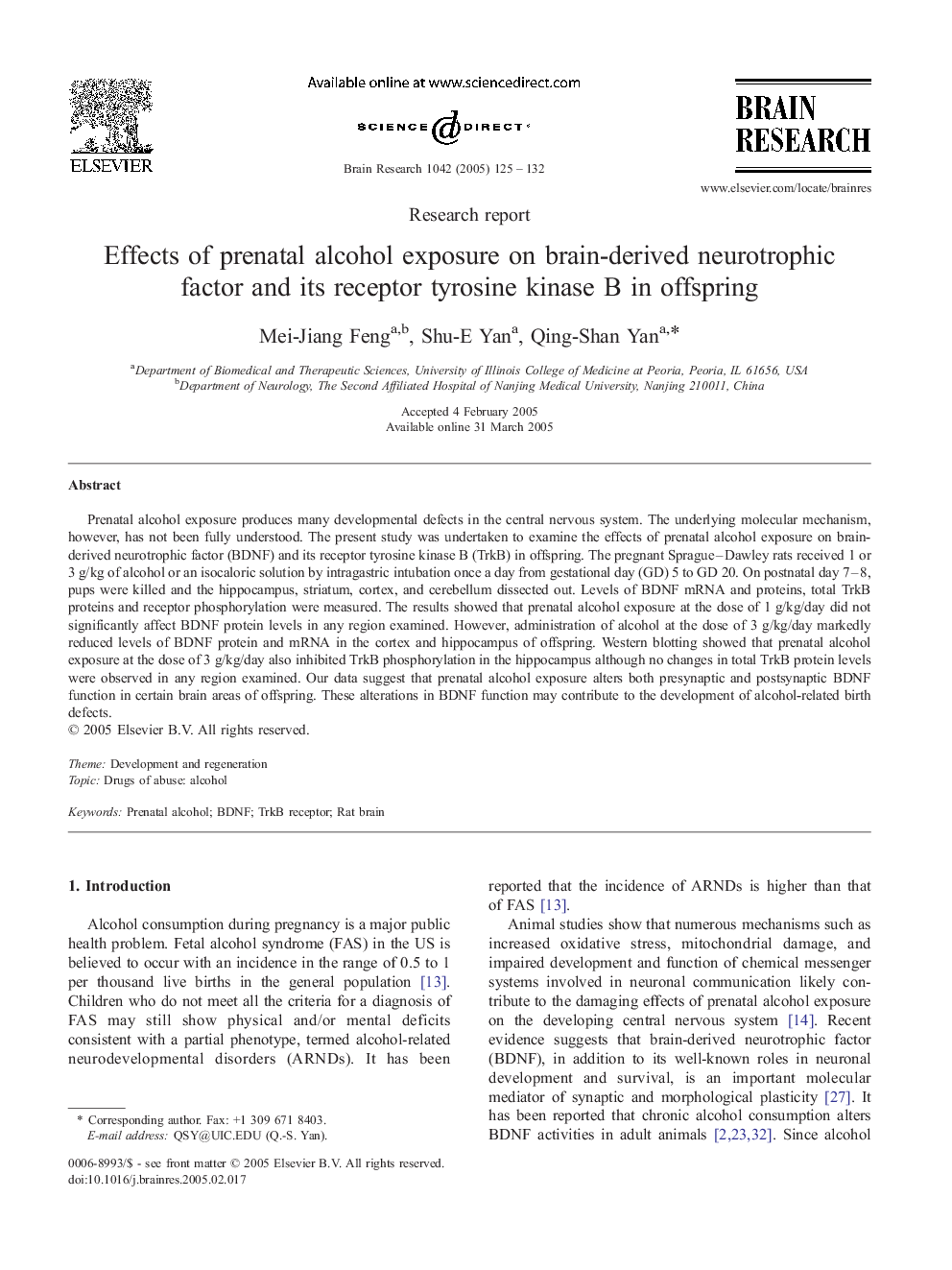| Article ID | Journal | Published Year | Pages | File Type |
|---|---|---|---|---|
| 9416501 | Brain Research | 2005 | 8 Pages |
Abstract
Prenatal alcohol exposure produces many developmental defects in the central nervous system. The underlying molecular mechanism, however, has not been fully understood. The present study was undertaken to examine the effects of prenatal alcohol exposure on brain-derived neurotrophic factor (BDNF) and its receptor tyrosine kinase B (TrkB) in offspring. The pregnant Sprague-Dawley rats received 1 or 3 g/kg of alcohol or an isocaloric solution by intragastric intubation once a day from gestational day (GD) 5 to GD 20. On postnatal day 7-8, pups were killed and the hippocampus, striatum, cortex, and cerebellum dissected out. Levels of BDNF mRNA and proteins, total TrkB proteins and receptor phosphorylation were measured. The results showed that prenatal alcohol exposure at the dose of 1 g/kg/day did not significantly affect BDNF protein levels in any region examined. However, administration of alcohol at the dose of 3 g/kg/day markedly reduced levels of BDNF protein and mRNA in the cortex and hippocampus of offspring. Western blotting showed that prenatal alcohol exposure at the dose of 3 g/kg/day also inhibited TrkB phosphorylation in the hippocampus although no changes in total TrkB protein levels were observed in any region examined. Our data suggest that prenatal alcohol exposure alters both presynaptic and postsynaptic BDNF function in certain brain areas of offspring. These alterations in BDNF function may contribute to the development of alcohol-related birth defects.
Related Topics
Life Sciences
Neuroscience
Neuroscience (General)
Authors
Mei-Jiang Feng, Shu-E Yan, Qing-Shan Yan,
